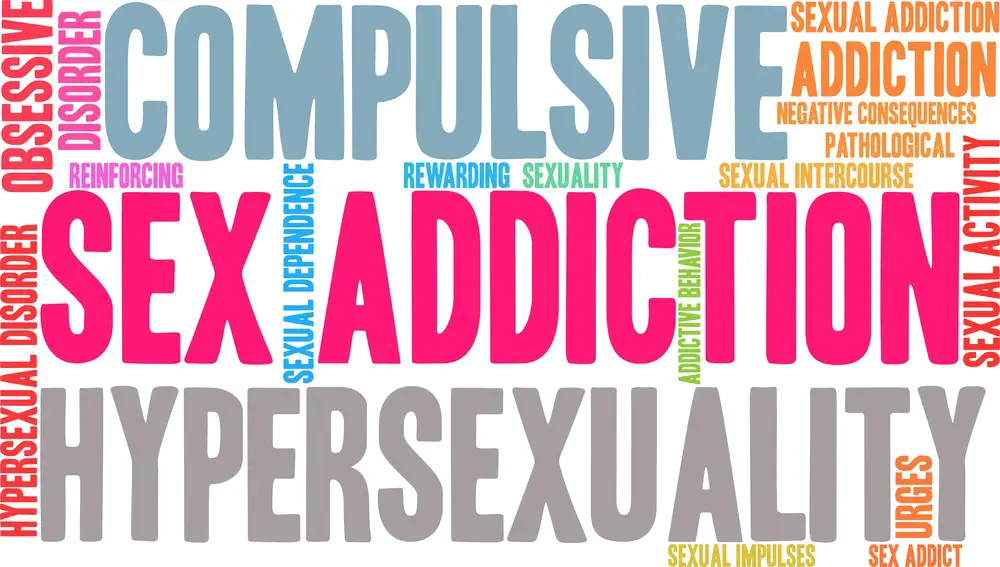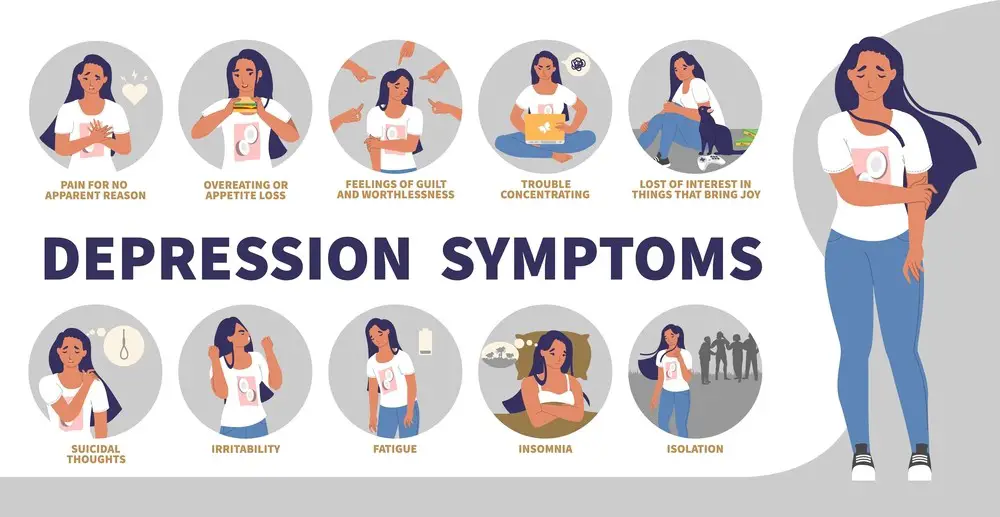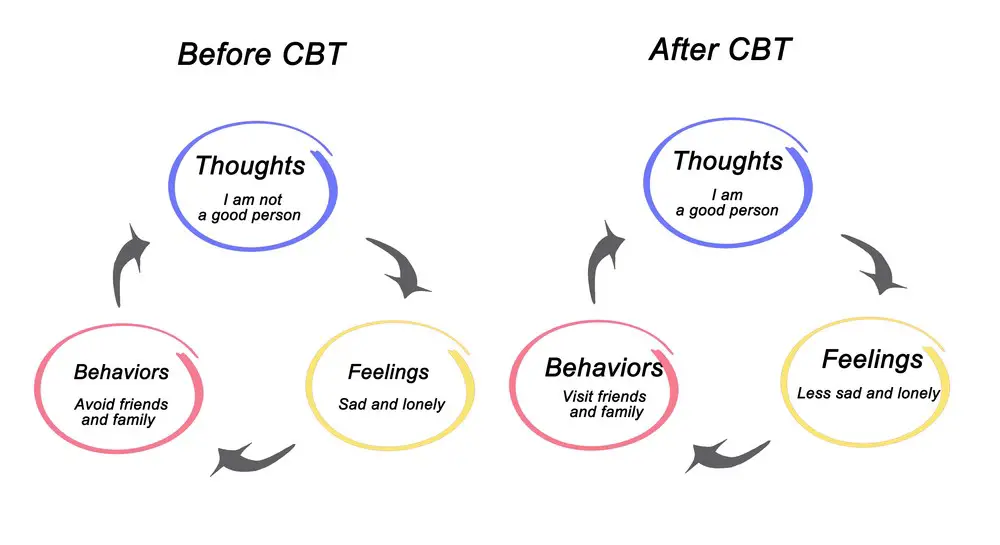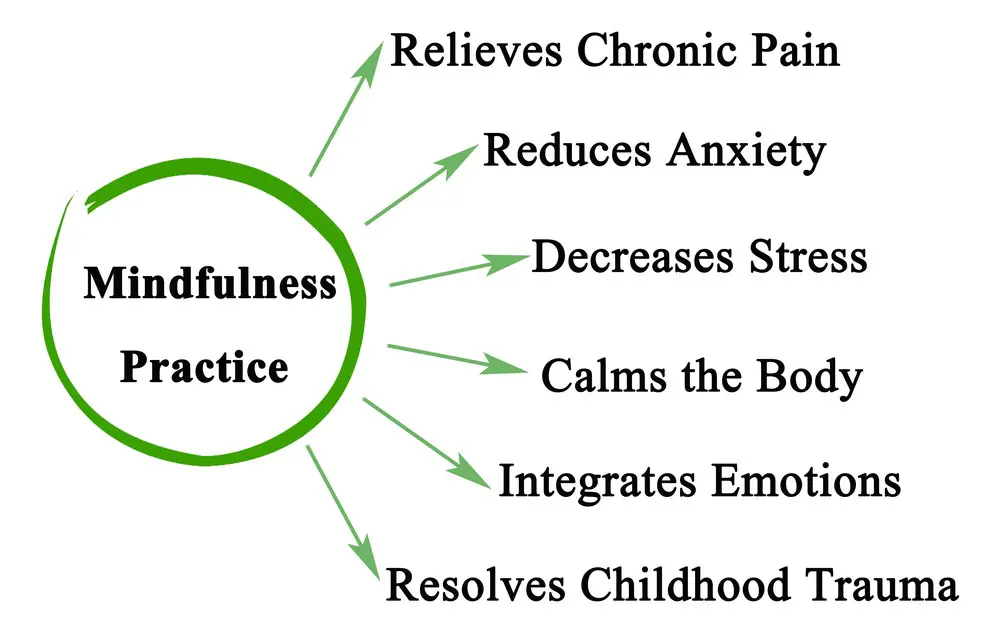As a BetterHelp affiliate, we receive compensation from BetterHelp if you purchase products or services through the links provided
The concerning impact of pornography on mental health, specifically its connection with depression, has garnered significant attention in recent years. With the increasing accessibility of pornography through digital platforms, it is imperative to investigate the potential psychological consequences of its consumption. This article will comprehensively examine the intricate relationship between pornography and depression, with a focus on critical aspects like addiction, compulsive behavior, and the detrimental effects on personal relationships.
Understanding the nature of depression is crucial when examining its connection to pornography. Depression is a debilitating mental health disorder characterized by persistent sadness, hopelessness, and a lack of interest in daily activities. On the other hand, pornography refers to sexually explicit content that is often consumed for arousal and pleasure. To fully grasp the impact of pornography on an individual’s mental health, we must also explore the neurological implications that can lead to addiction and compulsive behavior.
As the digital landscape continues to evolve, it becomes more accessible and easier to consume pornography. As a result, it is necessary to recognize the societal implications, stigmatization, and potential impact on the individual, their relationships, and overall mental health. We can better address these issues and develop effective therapeutic approaches by promoting healthy relationships and understanding.
Key Takeaways
- The article explores the complex relationship between pornography and depression.
- Key aspects discussed include addiction, compulsive behavior, and the impact on personal relationships.
- Promoting healthy relationships and understanding is emphasized in addressing the connections between pornography and mental health.
 Understanding Depression
Understanding Depression
Causes
Depression is a complex mental health condition caused by genetic, biochemical, environmental, and psychological factors. Stress can also significantly contribute to the development of depression. People may experience depression due to a chemical imbalance in their brain or circumstances such as loneliness, job loss, or the death of a loved one.
Symptoms of Depression
The symptoms of depression can be varied and may differ from person to person. Some common symptoms include:
- Persistent feelings of sadness, anxiety, or emptiness
- Loss of interest or pleasure in activities once enjoyed
- Fatigue and decreased energy
- Trouble concentrating, remembering, or making decisions
- Insomnia, early-morning wakefulness, or excessive sleeping
- Appetite or weight changes
- Thoughts of death or suicide, or suicide attempts
- Aches or pains, headaches, cramps, or digestive problems without a clear physical cause that do not ease with treatment
It is essential to recognize that these symptoms could indicate depression, particularly when they persist for longer than two weeks.
Treatment
The treatment of depression usually involves a combination of medication and psychotherapy. Medication, such as antidepressants, can help correct chemical imbalances in the brain and alleviate symptoms. Psychotherapy, also known as talk therapy or counseling, helps individuals explore their emotions, identify the root causes of their depression, and develop coping strategies.
In addition to medication and therapy, alternative treatments are available, such as exercise, meditation, and support groups. These approaches can help individuals manage their depression symptoms and improve their mental health. However, it is important for those experiencing depression to consult their healthcare provider to determine the best course of action for their situation.
 Exploring Pornography
Exploring Pornography
Concept
Pornography, also called porn, encompasses a wide range of explicit materials that depict sexual behavior. It is created to evoke sexual arousal and pleasure by displaying various sexual acts and scenarios. The content may include images, videos, stories, or audio recordings. It’s important to remember that society’s views on pornography may vary; what one person considers acceptable or pleasurable, another may find offensive or problematic.
Reasons for Consumption
People consume pornography for a variety of reasons. Some common reasons include:
- Seeking pleasure and sexual satisfaction: Numerous individuals derive pleasure from viewing pornographic content, which may lead to sexual arousal and orgasm.
- Curiosity: People may use pornography to explore their sexuality or to satisfy their curiosity about various sexual behaviors.
- Stress relief or escape: Watching porn can be a way for some individuals to relax and distract themselves from the pressures of daily life.
- Reinforcing sexual thoughts and fantasies: Using pornography may help individuals reinforce their sexual desires and fantasies by providing visual material to engage with.
Potential Consequences
While pornography can provide pleasure and relaxation for its consumers, it may also have negative consequences for individuals and society. Some of these potential consequences include:
- Shame and guilt: Consuming pornography may lead to shame or guilt, particularly in those with conservative views on sex or whose consumption conflicts with their values.
- Impact on sexual behavior: Pornography consumption has been linked to changes in sexual behavior, such as increased risk-taking or addiction to the rewards that porn provides.
- Effects on relationships: Heavy pornography use may contribute to relationship dissatisfaction, as individuals may develop unrealistic expectations about sexual experiences or struggle to maintain sexual satisfaction with their partners.
- Influence on body image: Exposure to pornographic content might lead to negative perceptions of one’s body, as the images often represent unrealistic or distorted ideals of beauty and sexual attractiveness.
Pornography and the Brain
The Reward System
The human brain is wired to seek pleasure and avoid pain. Dopamine, a neurotransmitter, plays a significant role in the brain’s reward system. When an individual watches pornography, dopamine is released, creating a pleasurable experience. Over time, the brain becomes reliant on this stimulus, leading to compulsivity and addiction. This can result in changes to the brain’s structure and functioning and impact a person’s emotions and overall mental well-being.
Impact on Emotions
The regular consumption of pornography is correlated with emotional disturbances and neuroticism. The imbalance in dopamine levels can lead to emotions such as anxiety, depression, and feelings of isolation. As individuals become more reliant on pornography for stimulation, real-life relationships may suffer, exacerbating these emotional consequences.
Alterations to Brain Function
Repeated exposure to pornography causes alterations in brain functioning, particularly in the regions responsible for emotion, behavior, and decision-making. Studies have shown that individuals with compulsive pornography consumption can experience decreased gray matter in the brain, leading to reduced cognitive abilities. Moreover, the constant release of dopamine and activation of the reward system may desensitize the brain and require more intense stimuli to achieve the same levels of pleasure. This can further reinforce compulsive behaviors and negatively impact a person’s ability to experience pleasure from everyday activities.
Addiction and Compulsive Behavior

Defining Addiction
Addiction is a complex condition characterized by a loss of control over one’s behavior, excessive indulgence in certain activities, and continuing those activities despite negative consequences. The American Society of Addiction Medicine defines addiction as a primary, chronic disease that affects the brain’s reward, motivation, memory, and related circuitry.
Porn Addiction
Porn addiction refers to excessive consumption of pornography, leading to interference in one’s daily life and relationships. Although not formally recognized as a diagnosable disorder in the Diagnostic and Statistical Manual of Mental Disorders (DSM), it shares commonalities with other addictive behaviors like substance abuse and gambling. Some signs of porn addiction include:
- Inability to stop or limit porn use: Individuals may have difficulty reducing their consumption even when they wish to do so.
- Withdrawal symptoms: These may occur when attempting to stop, including anxiety, irritability, or cravings for pornography.
- Neglecting other areas of life: Addicted individuals may prioritize porn over work, relationships, or hobbies, negatively affecting their lives.
- Continued use despite negative consequences: People with porn addiction continue to consume pornography even when it harms them or their relationships.
 Compulsive Sexual Behavior Disorder
Compulsive Sexual Behavior Disorder
Compulsive Sexual Behavior Disorder (CSBD) is a recognized mental health condition in the International Classification of Diseases (ICD-11) characterized by a persistent pattern of failure to control intense, repetitive sexual impulses or urges. CSBD often includes excessive masturbation, compulsive porn use, or frequent sexual thoughts. While porn addiction is not officially recognized as a separate disorder, it is often subsumed under CSBD as one of the manifestations.
CSBD differs from healthy sexual activity in that individuals experience a loss of control, leading to negative social, physical, and emotional consequences. It is important to distinguish between consensual, enthusiastic participation in sexual activities and compulsive, damaging behaviors driven by addiction.
In summary, pornography addiction and Compulsive Sexual Behavior Disorder are complex, interconnected issues characterized by loss of control and negative consequences on multiple areas of an individual’s life.
 The Relationship Between Pornography and Depression
The Relationship Between Pornography and Depression
Research Findings
Several studies have explored the link between pornography consumption and depression. Some research indicates a positive correlation, suggesting that individuals who consume pornography more frequently experience higher levels of depression, anxiety, and low self-esteem. However, it is essential to note that the findings are not uniform, and further research is needed to establish a concrete connection.
Potential Reasons
There are several potential reasons for the observed correlation between pornography and depression:
- Shame and guilt: Some individuals may feel shame or guilt after consuming pornography, leading to negative emotions and heightened depression or anxiety.
- Unrealistic expectations: Pornography often portrays unrealistic expectations regarding sexual performance and relationships, causing individuals to compare themselves and their partners to these portrayals. This can lead to self-esteem issues, dissatisfaction in relationships, and depression.
- Sexual dysfunction: In some cases, excessive pornography consumption may contribute to sexual dysfunction, such as erectile dysfunction in men and inhibited sexual desire in women. This dysfunction can lead to increased depression and anxiety.
Consequences of Usage
The consequences of pornography consumption, particularly when it is excessive or problematic, can be both psychological and relational:
- Relationship problems: Pornography consumption has been linked to relationship dissatisfaction and increased separation or divorce rates. Couples may experience reduced intimacy, trust, and emotional connection, contributing to depression in one or both partners.
- Low self-esteem: As mentioned earlier, individuals who consume pornography may compare themselves and their partners to the actors and scenarios portrayed, leading to feelings of inadequacy and low self-esteem.
- Anxiety: The potential for shame, guilt, and relationship problems associated with pornography consumption can exacerbate anxiety in individuals already prone to it.
- Sexual dysfunction: As previously mentioned, excessive pornography consumption may result in sexual dysfunction, harming an individual’s mental health and self-esteem.
In summary, while there is some evidence of a relationship between pornography and depression, further research is necessary to understand the connection and its potential implications fully.
Approaches to Therapy
 Sex Therapy
Sex Therapy
Sex therapy is a specialized form of counseling to address sexual problems and dysfunction. A sex therapist, often certified by organizations like the American Association of Sexuality Educators, Counselors, and Therapists (AASECT), can help individuals struggling with the negative effects of pornography on their mental health. These therapists focus on providing a safe and non-judgmental environment to facilitate open communication about sexual concerns and challenges. Techniques utilized in sex therapy may include education, communication exercises, and cooperation between partners to develop healthier sexual behaviors and patterns.
 Cognitive Behavioral Therapy
Cognitive Behavioral Therapy
Cognitive Behavioral Therapy (CBT) is a type of psychotherapy that focuses on challenging and modifying negative thoughts and behaviors related to pornography use and depression. A therapist guides the individual through identifying and reframing negative thought patterns. This therapeutic approach can help individuals develop coping strategies and build healthier habits. In addressing the impact of pornography on mental health, CBT can be a useful tool for establishing connections between porn consumption, mood disturbances, and overall well-being. Additionally, the therapist may recommend support groups to provide emotional assistance and accountability during recovery.
 Mindfulness
Mindfulness
Mindfulness, derived from the Buddhist tradition, involves paying nonjudgmental attention to one’s thoughts and feelings in the present moment. Incorporating mindfulness techniques within therapy sessions can support individuals in cultivating awareness of their emotions and thoughts related to pornography consumption. This therapeutic approach encourages individuals to acknowledge and accept their feelings and experiences without judgment, making it easier to develop healthier coping mechanisms. Mindfulness practices, such as meditation, help promote emotional regulation and self-control, which can be particularly beneficial for those battling the effects of porn addiction and depression.
Digital Influence
Online Pornography
The prevalence of online pornography has grown exponentially in the digital age. With the advent of the internet, accessing explicit content has become much easier, faster, and more discreet than ever before. This accessibility has consequences for individuals, particularly in terms of mental health. Studies have shown that there is a correlation between frequent consumption of internet pornography and depressive symptoms. One reason for this correlation might be that viewing explicit material can create unrealistic expectations and feelings of inadequacy, contributing to depression.
Apps and Accessibility
Besides traditional online platforms, apps have become another gateway for users to access pornographic content. Smartphones and mobile devices have facilitated on-the-go consumption, making explicit material available at users’ fingertips. This increased accessibility can exacerbate the association between pornography and depression, as individuals experiencing depressive symptoms may turn to explicit content as a means of escape or temporary relief, thus creating a vicious cycle.
Furthermore, the rise in app usage has led to a new phenomenon, “app-based depression.” This term refers to the negative impacts of constant engagement with technology and digital platforms on mental health. Users may become addicted to the instant gratification and dopamine release associated with consuming content on these apps, including pornographic material. As a result, individuals may experience increased feelings of isolation and loneliness, which can ultimately contribute to symptoms of depression.
Society must be aware of the potential consequences surrounding the digital influence of pornography and its implications for mental health. Recognizing these risks may enable individuals to make informed decisions about their engagement with explicit content and seek professional help if required.
Stigmatization and Societal Impact
The Role of Stigma
The stigma around pornography consumption can negatively impact mental health, including depression and low self-esteem. This stigma often comes from societal norms, religiosity, and personal beliefs. Stigma may lead individuals to experience a sense of guilt or shame, exacerbating underlying mental health issues.
Myths and Misconceptions
There are several myths and misconceptions surrounding pornography that directly contribute to its stigmatization. Some people erroneously believe that consuming pornography is always a form of problematic porn use or that it indicates a lack of moral integrity or self-control. It is important to recognize that these beliefs are not universally accurate and can harm those who consume pornography responsibly.
- Myth 1: Pornography is inherently harmful and leads to destructive behaviors.
- Myth 2: All pornography consumers are addicted to it.
- Myth 3: Pornography consumption is a moral failing or shows a lack of character.
Implication on Consumers
The implications of stigma, myths, and misconceptions on consumers can be significant. For individuals who responsibly consume pornography, societal stigma and misconceptions can result in feelings of guilt, shame, and isolation. This can negatively impact self-esteem and contribute to the development or worsening of depression. Additionally, individuals may be hesitant to discuss their habits or seek help for problematic porn use due to the potential social ramifications and judgment they may face. This further perpetuates the stigma and limits understanding and support for healthy discussions around pornography.
Promoting Healthy Relationships

The Role of Communication
In promoting healthy relationships, communication plays a crucial role. Open and honest dialogue allows partners to express their feelings, desires, and concerns without fear of judgment. By discussing topics like relationship problems and sexual satisfaction, couples can work together to find solutions and establish trust.
Furthermore, communication is integral to socializing, building a support network, and creating a sense of belonging. This effectively aids in counteracting depression and enhancing the overall quality of relationships.
Rebuilding Trust
Trust is a core element of any relationship, and rebuilding it may be necessary in cases where pornography use has led to mistrust. Regaining trust involves consistent and transparent behavior from both partners and demonstrating a genuine commitment to improving the relationship. This can include:
- Seeking professional help or attending couples therapy
- Setting and respecting boundaries
- Acknowledging and accepting responsibility for one’s actions
- Demonstrating empathy, patience, and understanding in the healing process
Nurturing Intimacy
Intimacy is essential to connecting with a partner on a deeper level. Beyond physical closeness, emotional intimacy is significant in fostering a strong relationship. Some methods to nurture intimacy include:
- Engaging in shared activities and interests
- Prioritizing quality time together without distractions
- Expressing love and appreciation openly and frequently
- Embracing vulnerability and encouraging emotional expression
These factors promote healthy relationships and mitigate the potential negative effects of pornography use, ultimately fostering an environment where both partners can grow and thrive.
Frequently Asked Questions
 What is the link between porn consumption and mental health?
What is the link between porn consumption and mental health?
Research has shown a connection between excessive porn consumption and negative mental health outcomes. While moderate use may not lead to significant issues, excessive consumption can potentially cause disruptions in one’s social, emotional, and cognitive well-being, contributing to anxiety, relationship difficulties, and depression.
Can excessive pornography use lead to depressive symptoms?
Yes, excessive pornography use can lead to depressive symptoms. Prolonged exposure to explicit content can create a cycle of addiction, where the user relies on it for stress relief and emotional escape, worsening their depression and perpetuating unhealthy coping mechanisms.
How does the brain’s reward system relate to depression and porn use?
The brain’s reward system is crucial in porn consumption and its link to depression. Consuming explicit content increases dopamine levels, providing pleasure and temporarily relieving negative emotions. However, consistent exposure to high dopamine levels can lead to a numbing effect, making everyday pleasures less satisfying and contributing to depressive symptoms.
What are the long-term effects of frequent exposure to explicit content?
Long-term effects of frequent exposure to explicit content include desensitization to sexual stimuli, relationship problems, decreased sexual satisfaction, and impaired cognitive functioning. Additionally, excessive consumption can contribute to mental health issues such as depression, low self-esteem, and anxiety.
How can one control excessive porn consumption to improve mental well-being?
To control excessive porn consumption, individuals can focus on setting boundaries, prioritizing self-care, developing healthy coping mechanisms for stress, and seeking social support. In some cases, professional help from a therapist or counselor may be necessary to address underlying mental health issues and develop healthier habits.
Are there any interventions or therapies for those struggling with porn addiction and depression?
There are interventions and therapies for those struggling with porn addiction and depression. Cognitive-behavioral therapy (CBT) is an evidence-based approach to help individuals identify and change negative thought patterns and behaviors related to porn consumption. In some cases, antidepressant medications may be prescribed to manage depressive symptoms. Furthermore, support groups and 12-step programs can provide a community for individuals dealing with porn addiction and depression.
Jacob Maslow is a mental health advocate and therapy veteran who harnesses his experiences to shed light on pressing issues, such as the correlation between pornography and depression. Managing his mental health with the aid of Lexapro, Jacob understands firsthand the toll of dealing with personal challenges. He has grappled with the heartache of a prolonged court battle due to an ex-partner’s severe narcissistic tendencies and refusal to adhere to custody agreements. This personal experience has driven him to pen insightful articles aimed at helping others navigate the complexities of mental health and narcissistic relationships. A testament to his resilience, Jacob finds solace in his daily long walks—a therapeutic ritual that allows him to clear his mind. Beyond his writing on mental health, Jacob also runs a legal site dedicated to assisting those facing non-compliant spouses in custody disputes, advocating for a co-parenting approach over weaponizing children.
- 7 Ideas to Help You Relax and Unwind on a Family Vacation - April 27, 2025
- How Having Cybersecurity Protection Helps You Relax - April 25, 2025
- 8 Reasons Why Spending Time Outside Calms You Down - April 25, 2025
This site contains affiliate links to products. We will receive a commission for purchases made through these links.


 Understanding Depression
Understanding Depression Exploring Pornography
Exploring Pornography Compulsive Sexual Behavior Disorder
Compulsive Sexual Behavior Disorder The Relationship Between Pornography and Depression
The Relationship Between Pornography and Depression Sex Therapy
Sex Therapy Cognitive Behavioral Therapy
Cognitive Behavioral Therapy Mindfulness
Mindfulness What is the link between porn consumption and mental health?
What is the link between porn consumption and mental health?
